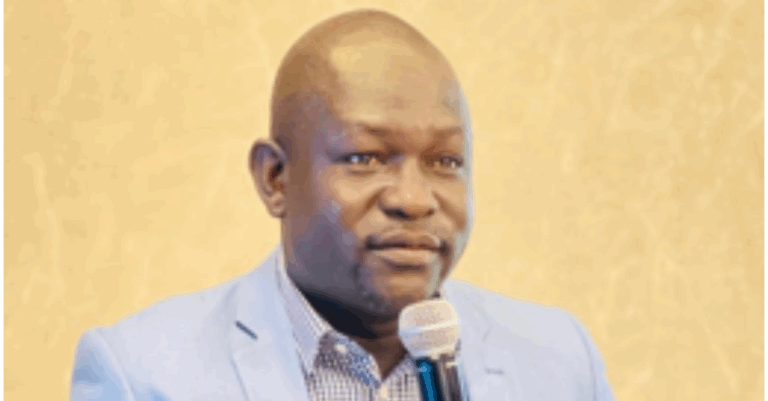The South Sudan Human Rights Defenders Network (SSHRDN) on Thursday expressed its concerns over the Cybercrime and Computer Misuse Bill 2025, warning that without proper safeguards, the proposed law could be misused to restrict fundamental freedoms guaranteed under the Transitional Constitution.
The bill, which awaits its third and final reading in parliament, seeks to address online fraud, unauthorized data transmission and other digital offenses, building on the Cybercrimes and Computer Misuse Provisional Order of 2021.
“The law must clearly define what constitutes a cybercrime,” said James Bidal, head of the SSHRDN Secretariat. “Unduly broad provisions relating to publication of false information, offensive communication or incitement through computer systems risk criminalizing legitimate online activity, including journalism, advocacy and peaceful expression. Citizens should not fear prosecution simply for exercising their rights online.”
SSHRDN said the bill lacks strong privacy and freedom-of-expression protections, warning that vague enforcement powers could enable surveillance, intimidation or unlawful interception of communications.
“Safeguards are non-negotiable. Without them, this law could be used to monitor, harass or silence individuals, journalists and human rights defenders,” Bidal said.
He called for judicial oversight to ensure investigative authorities act lawfully and transparently. “Independent oversight is critical to prevent abuse of power and to guarantee that any seizures or digital investigations are conducted with proper legal authorization,” he added.
While acknowledging positive elements of the bill, including provisions for service provider responsibilities and international cooperation, SSHRDN urged lawmakers to maintain continuous engagement with civil society and technical experts throughout the legislative process.
“South Sudan must not sacrifice civil liberties in the name of digital security,” Bidal said. “Ongoing dialogue with stakeholders is essential to craft a law that balances cybersecurity with human rights.”
Edmund Yakani, executive director of the Community Empowerment for Progress Organization (CEPO), welcomed the progress made in parliament but echoed calls for transparency and public consultation.
“We appreciate the Transitional National Legislative Assembly for advancing this bill to its third reading,” Yakani said in a recorded statement. “However, before the third reading, there must be a public hearing. It is standard practice that any legislation undergoing enactment should allow public input.”
Yakani urged lawmakers to ensure the bill is not used to target individuals or restrict civic space. “This bill should deal with criminals involved in cyber offenses, not be used as a weapon against activists or political opponents,” he said.
TheTransitional National Legislative Assembly moved the Cybercrime and Computer Misuse Bill to its third reading on Thursday. The legislation aims to establish a legal framework for prosecuting cybercrimes, protecting digital transactions and regulating online activities.
The bill’s journey began in 2020, when President Salva Kiir issued it as a provisional order under constitutional powers that allow such measures when parliament is in recess. Lawmakers later returned it to the executive for revision before formally introducing it in September 2024.
During the parliamentary session on Thursday, Natalina Amjima Malek, acting chairperson of the Committee on Information, described the bill as “paramount” and said it aligns with both national and international standards, including the African Union’s Malabo Convention on Cybercrime.
Amjima said the committee held public consultations and workshops supported by UNESCO and the U.N. mission in South Sudan (UNMISS), and studied similar laws in Kenya and India. She said the revised bill includes new sections clarifying service providers’ obligations, reorganized chapters on “Offenses and Penalties,” and detailed procedures for investigation and prosecution.
During the third reading, lawmakers will deliberate on specific provisions before taking a final vote to enact the law.
Observers say the bill is necessary to combat rising online threats in South Sudan’s expanding digital space but warn that it could be dangerous if implemented without adequate checks and balances. They argue that for the law to be effective and fair, it must include clear definitions of offenses, independent oversight of enforcement, and strong protections for journalists, whistleblowers, political activists and human rights defenders.
Similar concerns have emerged in neighboring Kenya, where the High Court on Wednesday suspended enforcement of a section of the Computer Misuse and Cybercrimes Act that introduced tougher penalties for cyber harassment. Justice Lawrence Mugambi issued the order following a petition by gospel musician Reuben Kigame and the Kenya Human Rights Commission, who argued that the law threatened freedom of expression.




